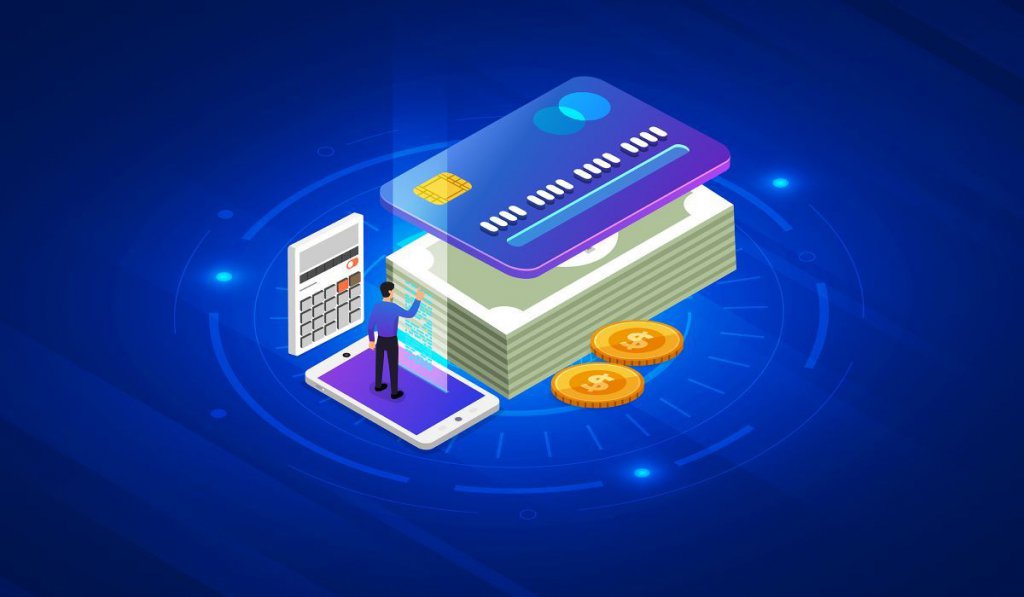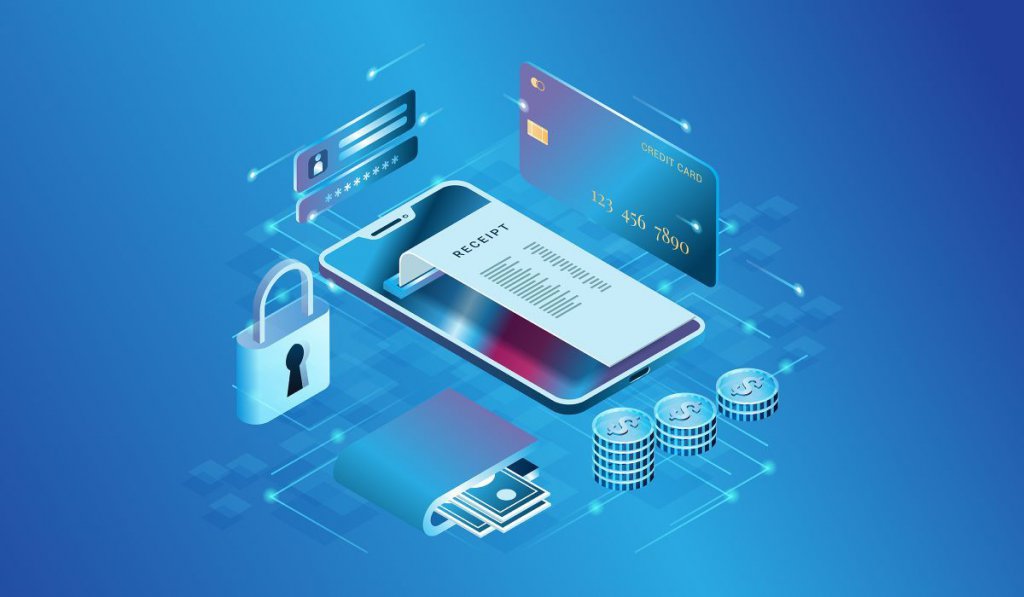Despite the pandemic, the global fintech sector has seen fascinating advancements over the past decade. While the COVID-19 outbreak did raise doubts regarding forecasts from fintech experts, it in no way slowed down progress within the industry. Technological breakthroughs have continued to radically influence lives and create more opportunities, taking fintech to a whole new level.
Despite the pandemic being far from over, now that the world has started to get back on track, we can be more certain about the innovations that the future holds for the fintech industry. With the advent of complex technologies such as Blockchain, Artificial Intelligence, and Machine Learning, Big Data, and more, fintech is significantly transforming our way of life.
Here are our top picks for the top fintech trends you should watch out for in 2021.
Digital Banking and Neobanks

Banks have started turning to a digital-only banking model called “neobanking” by offering their facilities exclusively through online services. What this essentially means for you, as a client, is that you no longer have to stand in painfully long queues anymore. You also don’t have to endure lengthy and exhausting processes only to open an account, sign documents, etc. Simple tasks such as paying your bills, managing your expenses, and viewing your balance have gotten a lot quicker and convenient, along with the added benefit of real-time analytics. Further, since these operations occur online, banks also benefit from the money they save by cutting down office and staff expenses.
The difference between digital banks and neobanks is that neobanks are independent and operate on an entirely digital model, whereas digital banks exist as an online extension of traditional banks. Users find neobanks far more convenient than conventional banks for several reasons, including personalized customer experience and the absence of monthly fees or withdrawal costs.
It seemed impossible for banking institutions to function entirely digitally due to the limitations of online banking. However, with the COVID-19 outbreak, new generation financial institutions quickly devised a digital-only banking model as it became imperative to ensure zero physical contact.
Digital payment is one of the most remarkable fintech products, as evidenced by this McKinsey study. Rising competition among financial institutions to provide digital-only services is a good sign for customers as they will soon have a wide range of banking offers from which they can choose.
WealthTech

WealthTech aims to automate and enhance wealth management and investment processes through the use of cutting-edge technology. This sub-segment of the fintech industry experienced a growth in investment during the lockdown. Fintech Global reports some impressive figures – $1.7 billion in funding during the first quarter of 2020 alone – that highlight the development prospects of WealthTech. Since the entrepreneurs realized that businesses could successfully function online, more and more digital services for financial management have surfaced for both corporate and personal consumers. Experts predict that futuristic technologies such as AI and Big Data will offer even more effective financial solutions.
Robo-advisors are one of the most sought-after WealthTech services at present. These automated portfolio managers help investors make critical financial decisions using algorithms and machine learning technology. Robo-advisors provide expert services by reviewing market data and the user’s goals to provide personalized recommendations. Although there is a possibility that they will replace traditional financial advisors in the future, such platforms offer additional investment opportunities.
Wealthtech also includes other exciting solutions:
- Digital brokerage platforms offer quick and easy access to data about the stock market
- Micro-investment platforms allow you to invest small amounts regularly with no commission.
Since the fintech industry aims to develop varied financial solutions that are much simpler and lucrative, WealthTech offers easy access and convenience for money management.
Robotic Process Automation (RPA)

Although it may sound like the kind of technology with a complex implementation process, we assure you that you and I, as consumers, have already established contact with RPA at some point. RPA, which is an artificial intelligence system that can make autonomous decisions, has already been rolled out across various fintech domains to a great extent.
Soon, further automation can boost efficiency and minimize errors in datasets and processes. So, what are the changes we can expect over the coming years?
Redundant or repetitive processes such as customer onboarding, security checks, reporting, compliances, and others will be handled by the machines so that the human workforce can be made available for more complicated tasks.
RPA’s predictive analytics can even go so far as to predict the likelihood of a consumer repaying loans. Crucial loan processes such as background verifications will become harder to get through, which will, in turn, make it harder to defraud the financial institution.
Using AI-based financial technologies is no longer just a trend. AI-powered systems can automatically detect whether a client matches a specific segment and then launch a set of actions that are most appropriate to the situation. Artificial intelligence enhances the quality of user-experience and daily operations by using a combination of predefined criteria to determine the right course of action.
Financial institutions implement AI-powered solutions to create chatbots and activate fraud and risk detection modules. According to Finivi, the industry can expect to cut down on bank operating costs by 22% and save more than $1 trillion by 2030, thanks to AI. Furthermore, a report by Juniper Research stated that chatbots would save 7.30 billion dollars worldwide by 2023.
AI-based solutions are gaining strength and becoming increasingly complex. For instance, some AI systems can automatically assess the best way forward for investment, while others can act as assistants for creditors and bankers. AI developers can also automate complex or analytical tasks and not just routine administrative ones. Artificial intelligence will become the key trend in the foreseeable future, experts say.
Big Data

Technologies that function online need to have the ability to safely store and process vast amounts of data in an instant. The big data market can expect a global rise of up to 103 billion U.S. dollars by 2027, states one report by Statista. These days, financial institutions seek to offer better personal experiences for their customers, for which they use customer data to provide services that are tailored individually to each customer.
Financial institutions collect as much information as possible about the client to create compelling work strategies based on each customer persona. In addition to this, firms can also predict customer behavior, personalize their offers, and increase customer loyalty by analyzing data. Big data allows financial institutions to segment their customers, receive real-time insights about them, predict services that will attract customer attention, as well as optimize prices. In summary, big data gives your business the chance to switch to a client-centric model to achieve improved results.
However, since the size of the data increases, it becomes harder to manage it while ensuring the security of customer information at the same time.
Data collection and processing technologies have earned a significant investment from the financial industry for data warehouses and data visualization and analysis tools. Both customer expectations and competition have rapidly risen, making it that much more pertinent to process data quickly and efficiently to attract and retain customers while ensuring security at the same time. The fintech industry plans to continue to focus on improving these facilities.
Blockchain

Blockchain is a technology that has been flourishing in the financial sector since its creation. By giving you the option to exclude third parties from the transaction process and safely storing data, blockchain offers a transparent solution that helps tackle several problems at once. Following in the footsteps of startups, many traditional institutions have started testing the waters and offering blockchain-powered solutions. According to a report from Statista, blockchain wallets had over 50 million users as of June 2020, indicating that the market is eager to bring this technology into effect.
Blockchain allows the finance industry to develop a peer-to-peer currency network that offers quick payments and low commissions. Finivi states that as of March 2020, the crypto market grew to a market capitalization of more than $155 billion. Cross-border payments have also become cheaper and easier to manage due to financial institutions that offer cryptocurrency facilities. Blockchain technology will help pave a new path for financial institutions who hope to build a system that provides security and transparency.
Smart contracts, which are programmable contracts with automated executions, are designed to minimize transaction costs offer possibilities that play a distinct role in the implementation of blockchain. By automating financial processes such as client order submissions, smart contracts vastly improve the quality of contract-based services like loans and insurance. And since it offers a fully traceable and transparent mode of transaction, Smart Contracts instill greater trust among the involved parties, held strictly to their payment obligations. According to Market Research Future, the Smart Contracts market has been forecast to grow to approx. $300 million globally, by the end of 2023.
Digital Wallets and Alternative Payment Modes

The concept of digital wallets saved its users much trouble during the pandemic by offering a contactless mode of transaction. We expect this climb in usage to continue because of the convenience of using a single wallet to transact across multiple platforms. Refunds and cash returns processes have also become more simple, which only serves to make wallets an even more attractive option. In realizing this, many fintech companies launch their independent wallets or collaborate with third-party digital wallet providers to facilitate easy transactions.
Mobile payments shot upwards in 2016 when 90% of smartphone users used their mobile devices to complete payments, says TechCrunch. Since the widespread fear of contracting an infection through surfaces is still present, fintech solutions such as mobile wallets from Apple Pay and Walmart Pay and QR codes are likely to replace actual wallets as they offer contactless payments.
Optimized Cybersecurity

Cybersecurity optimization is going to be a top priority for several companies in the fintech industry. Financial institutions that deal with customer information like credit balance, money, and other sensitive data will be on high-alert to thwart any threats to the company, users, and devices.
In addition to this, hackers can easily exploit instances where fintech companies have implemented IoT for their activities. Most fintech companies will focus on cybersecurity in the coming years to mitigate such risks.
Apart from taking a hit to their reputation, financial institutions also face other severe consequences while facing cyber threats, such as:
- Cooperating with unknown parties whose reliability cannot be guaranteed.
- Active transmission of online data and use of mobile technologies.
- An increasing number of hacker attacks.
A report by Cybersecurity Ventures, damages incurred from cybercrime could reach well over $6 trillion per year by 2021. Thus, cybersecurity is a key focus area when implementing new technological solutions. Following are some of the top priorities in cybersecurity for fintech companies:
- Transaction security, which includes secure identity authentication and control of transaction intelligence risk.
- Data security management, which covers the protection of personal data.
- Cybersecurity, which comprises technical security tools and security service.
However, technology is not the only factor necessary to improve security systems. It is just as crucial for a company to raise customer and employee awareness as it is for them to upgrade internal security and threat response strategies. Fintech companies are highly prone to cyberattacks since their activities are connected closely with money. According to a recent study, the development and implementation of security strategies contribute to 70% of a bank’s investment funds. In recent years, the financial market has been underscoring the importance of developing security systems such as blockchain solutions by heavily investing in them.
In conclusion
Despite all the challenges it faces, experts predict a promising future for the fintech industry. Since the financial sector continues to evolve and use online and technical processes, innovative technologies like blockchain and AI offer a highly profitable financial service method. While cybersecurity is still a risk area, recent trends indicate that we can expect to see financial companies making headway with security strategies in 2021.
Ideally, fintech companies should watch out for industry trends and improve the quality of their essential products. While the pandemic does offer a wide array of opportunities for fintech startups, it would do fintech companies much good to remember that the post-COVID environment requires cautious and safe treading.